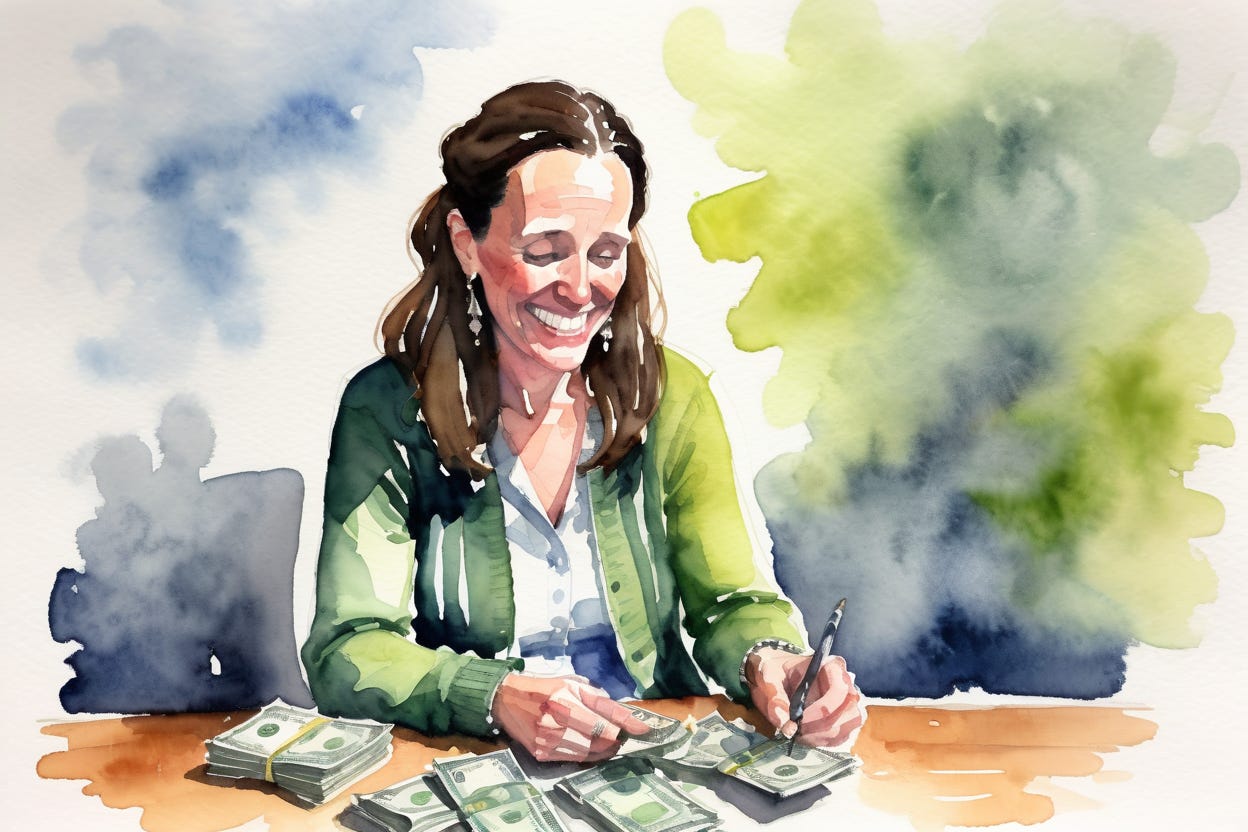I’m Not Letting Money Write My Story Anymore!
How a lifetime of financial wounds led me to create a radical experiment in healing scarcity, together in community.
I gave Money my decision-making power.
It started as early as middle school when I started to think that I couldn’t make a living as a writer, so I needed a back-up plan. That led to Money determining what college I would go to, what I majored in at that college. What graduate degree I got. What job I took after college. What apartment I lived in. . . an…




